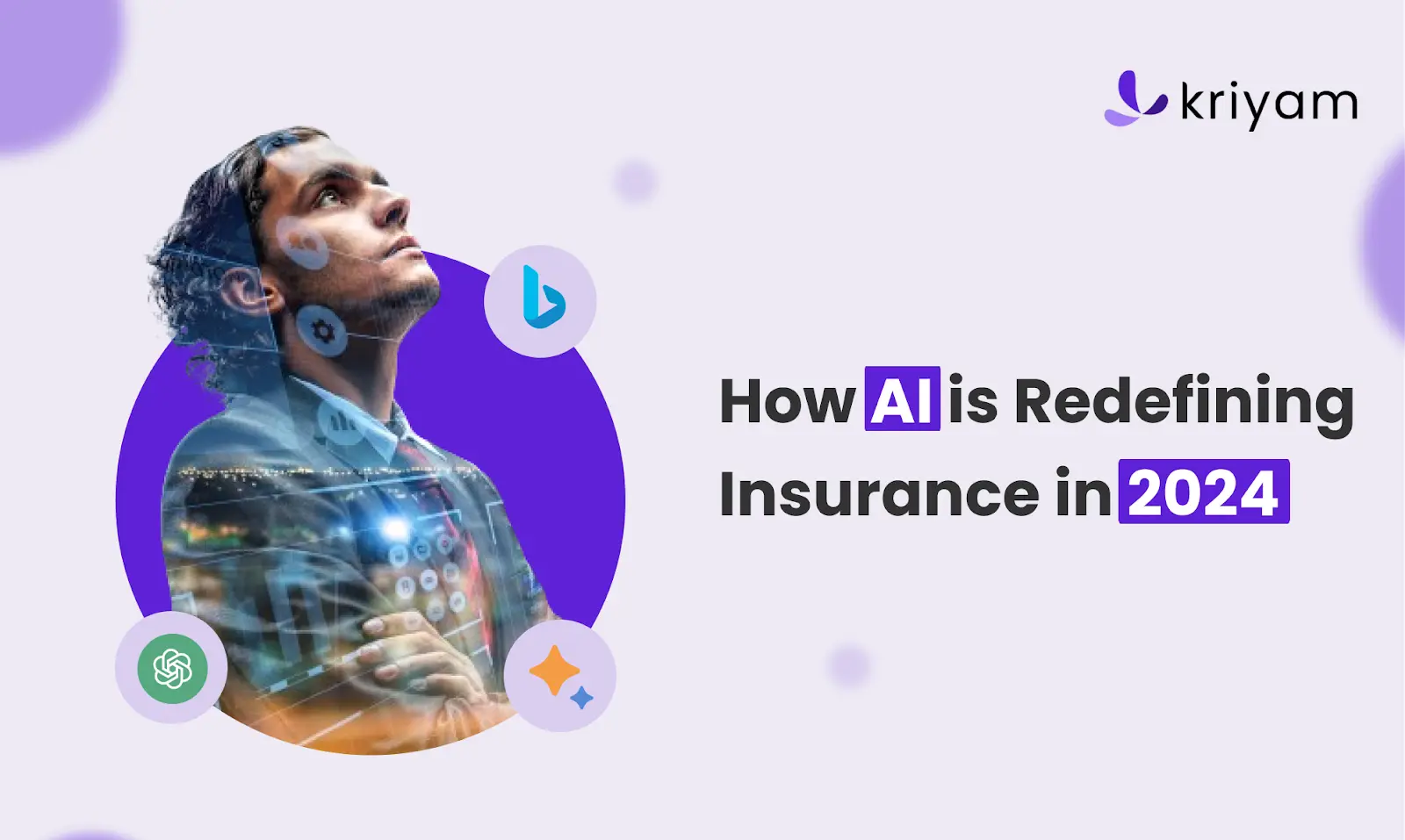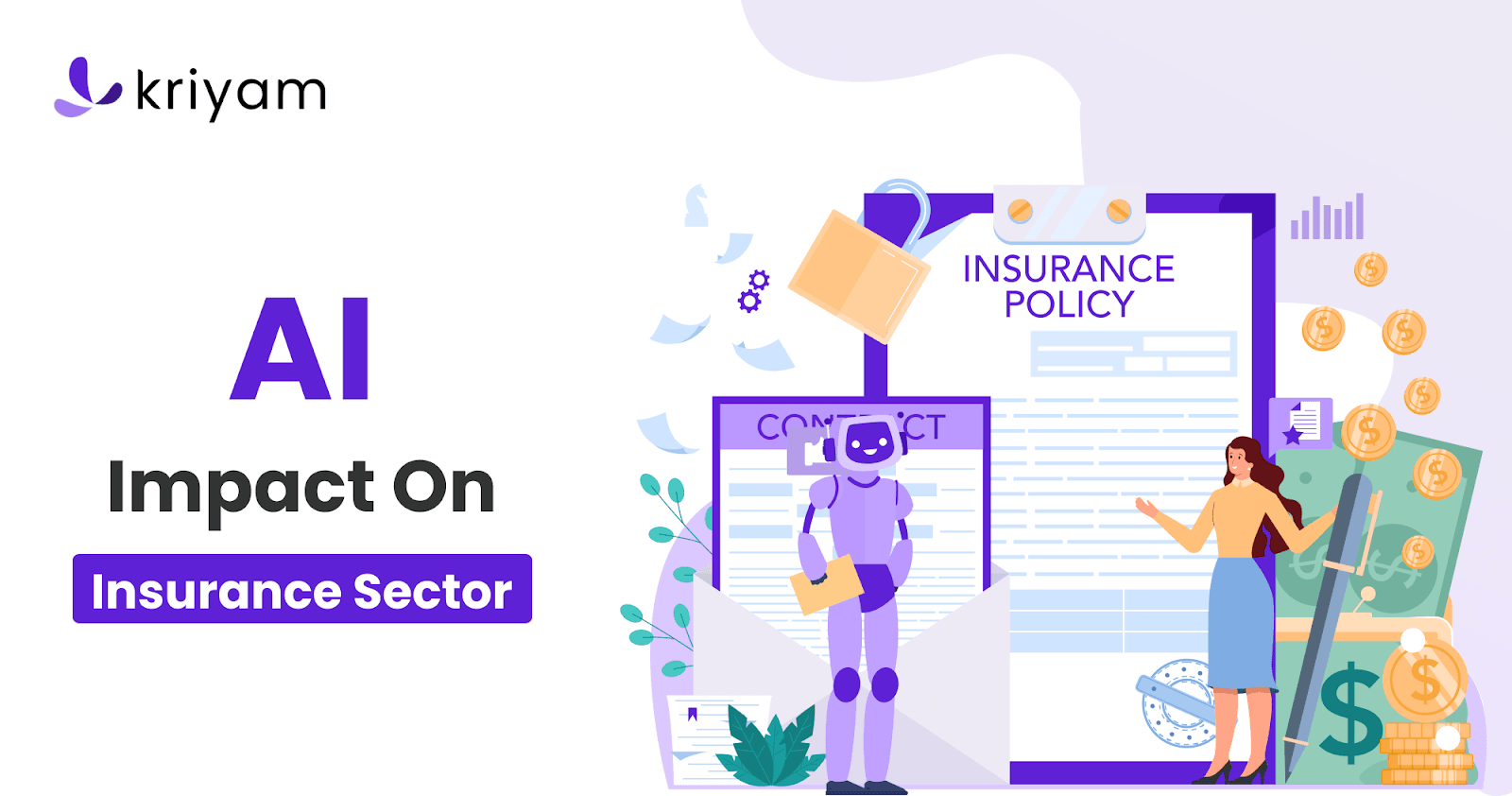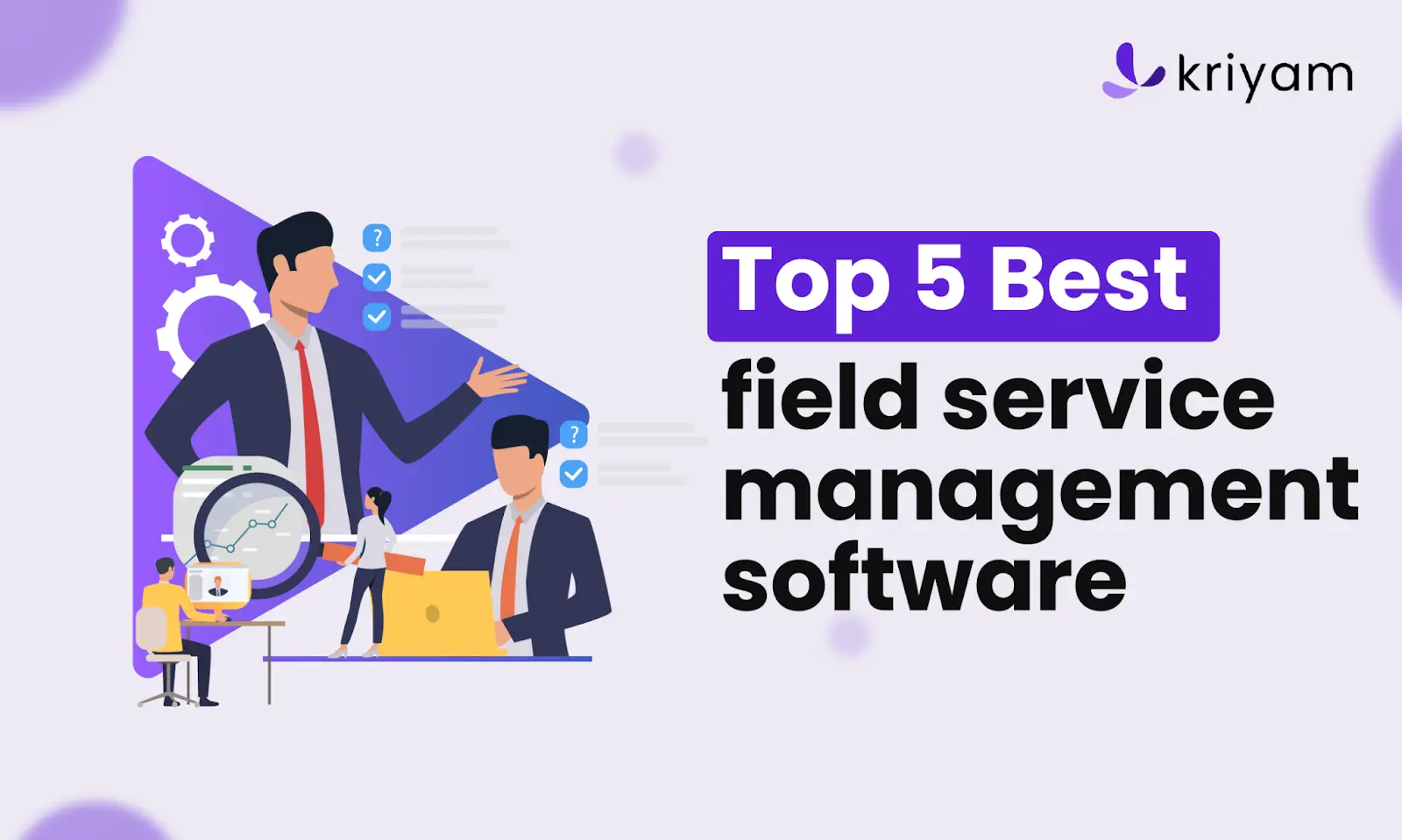AI use cases in Insurance in 2025
Suvajit Sengupta | 11th January, 2024
4 min reads
Suvajit Sengupta | 11th January, 2024 | 4 min reads

Are you curious about how artificial intelligence is changing the world of insurance? Picture a world where AI isn't just a futuristic idea but a powerful force in today's insurance business, completely changing how we deal with it. In our latest blog, we'll Probe into the exciting and creative ways AI is used in insurance. We'll show you how AI makes complex things simpler, makes everything work better, and tailors solutions to our own unique needs. From automating routine tasks to providing personalized customer experiences, AI is revolutionizing the insurance sector, presenting diverse AI use cases in insurance. This transformative technology makes insurance more innovative and accessible to everyone. Let's explore together the amazing impact of AI in the insurance world!
How Insurance Companies Are Utilizing AI in 2025: Exploring AI Use Cases in Insurance
In 2025, the insurance industry has undergone a significant transformation, applying AI use cases in insurance for greater convenience and personalization. Insurance companies are now using AI to adapt policies uniquely suited to individual needs, similar to custom-made suits for insurance. This involves AI analyzing personal behavior and historical data to accurately determine insurance rates for each customer, revolutionizing the way insurance is calculated and offered. The integration of AI in the insurance sector encompasses several key aspects: the benefits of AI in insurance, insurance automation, and the practical use of AI in insurance. These elements together are enhancing the efficiency, accuracy, and personalization of insurance services. AI-driven solutions are transforming how policies are crafted and managed, improving customer interactions through automation, and making processes like claim filing and fraud detection more effective. The use of AI in insurance represents a significant advancement, offering a multitude of advantages for both insurance providers and their customers. The fraud detection part is like a detective show. The AI looks for sneaky patterns that humans might miss. This keeps everything safer and more trustworthy.
Last but not least, AI helps them guess what might happen in the future, like a weather forecast, but for risks. This helps the insurance folks prepare better and keep things smooth.
The Future of Insurance with AI

1 . Application Processing
The integration of Artificial Intelligence (AI) in the insurance sector, particularly in application processing, has been a game-changer, enhancing efficiency and accuracy in various aspects of the industry.
Statistics and Examples Demonstrating AI's Impact in Insurance Application Processing
Making Things Faster and Easier: AI helps insurance companies work faster and more efficiently.
It's like having a super-smart assistant that can sort through a lot of information quickly and make good decisions. This means customers don't have to wait as long when they apply for insurance.
Better at Predicting Risks: AI is really good at looking at lots of data to figure out how risky something might be.
This helps insurance companies decide how much to charge for insurance. For example, AI can look at weather patterns to help decide the cost of insurance for natural disasters.
Catching Fraud: AI is like a detective that's really good at spotting when someone is trying to cheat the system.
In 2018, about 13% of insurance claims used AI to spot fraud, and by 2025, it's expected that the AI industry in insurance will be worth about $4.5 billion
Helping with Lots of Different Insurance Types: AI can help with all kinds of insurance, like cyber risks (risks related to the internet and computers).
It helps companies understand and price these new types of insurance better.
Less Stress for Workers: AI takes care of the boring and repetitive tasks, which means less stress for the people who work at insurance companies.
This makes their jobs easier and helps them focus on more important things.
Quick Response to Customers: Almost half of the insurance companies (47%) say that AI helps them handle insurance claims faster.
This means customers get their issues resolved quickly and are happier with the service.
Making Big Changes in Customer Service: A lot of insurance leaders (79%) think AI will really change the way companies talk to and understand their customers.
This could mean better service and more personalized experiences for customers.
Speeding Up the Process: AI can make underwriting (the process of deciding if someone can get insurance and at what cost) 70% faster.
This means people can get their insurance sorted out much quicker. In short, AI is making a big difference in the insurance world. It's making things faster, more accurate, and easier both for the customers and the insurance companies.
2. Claim Processing
The influence of AI on claim processing is truly groundbreaking. It's like having an ultra-efficient helper who never tires, dedicated to processing claims with unmatched speed and accuracy.
This speeds up the settlement procedure and improves the precision and fairness of the results, which in turn increases customer confidence and satisfaction.
In the context of claim processing in the insurance industry, the integration of AI has been particularly influential in three specific areas: Field Verification, Video Verification, and Face Recognition. Here's a more detailed look at each:
Field Verification
- Data Gathering and Analysis: AI-driven systems are deployed to collect real-time data directly from the site of the insurance claim, such as the location of a car accident or property damage.
This data can include photographs, sensor readings, or other relevant information.
- Enhanced Accuracy: By analyzing this data, AI can provide precise and thorough evaluations of the situation.
This is particularly useful for assessing the extent of damage or loss, which is crucial for determining the claim amount.
- Efficiency in Processing: The use of AI in field verification expedites the entire process.
It reduces the need for manual inspections, which can be time-consuming and more prone to error. This leads to faster claims processing and settlements.
Video Verification
- Real-time Analysis: AI systems can analyze video feeds in real-time, which is particularly useful in verifying the circumstances of a claim.
For example, in the case of a car accident, AI can analyze traffic camera footage to determine the sequence of events.
Authenticity and Reliability: The ability of AI to process and verify video data adds a layer of authenticity and reliability to the insurance process. It helps in eliminating fraudulent claims by ensuring that the evidence provided is accurate and unaltered.
Transparency and Trust: Implementing video verification through AI makes the claims process more transparent.
It provides tangible evidence that can be quickly reviewed and verified, thus building a stronger trust between insurers and customers.
Learn more about how AI enhances customer onboarding with our Video KYC solution
Face Recognition
Secure Access: Face recognition technology is used in the insurance industry to provide secure access to services.
For instance, customers can use face recognition for secure log in to their insurance accounts or to verify their identity when filing a claim.
Fraud Prevention: This technology plays a significant role in fraud prevention. By ensuring that the claimant is indeed who they claim to be, face recognition helps in avoiding false claims and identity theft.
Personalization and User Experience: Face recognition can also enhance the user experience by streamlining access to services.
It offers a personalized interaction, as the system can quickly identify the customer and their insurance history.
3. Underwriting
The implementation of Artificial Intelligence (AI) in underwriting is reshaping the insurance industry by bringing a high level of efficiency and personalization.
Why AI Needs to be Implemented in Underwriting:
Enhanced Data Processing: Underwriting traditionally involves analyzing a vast amount of data, which can be a slow and error-prone process when done manually. AI can process this data much faster and more accurately, leading to better decision-making.
Risk Evaluation: AI algorithms are adept at assessing risk by identifying patterns and correlations in data that might not be obvious to humans.
This leads to a more accurate evaluation of risk, which is crucial in underwriting.
Personalization: AI allows for the customization of insurance policies. By analyzing individual customer data, AI can tailor policies to fit the unique needs and risk profiles of each customer.
Predictive Analytics: AI can predict future trends and potential risks by analyzing current and historical data. This predictive capability is invaluable in underwriting, where understanding and anticipating risks are key.
How AI is Used in Underwriting Now:
- Automated Risk Assessment: AI systems are currently used to automatically assess the risk level of potential clients.
They analyze various factors such as age, health records, driving history, and more to determine the risk profile.
- Pricing Strategies: AI aids in setting premium rates that are fair and competitive.
It can analyze market data and individual risk factors to suggest optimal pricing.
- Fraud Detection: AI can identify patterns that might indicate fraudulent activities.
In underwriting, this helps in avoiding insuring high-risk clients who might not be truthful in their application.
- Streamlining Application Process: AI makes the application process for insurance much smoother and faster.
It can quickly process the information provided by applicants and automate much of the initial underwriting tasks.
4. Risk Analysis
Using Artificial Intelligence (AI) in risk analysis for insurance is like having a super-smart system that helps insurance companies understand and deal with risks better. Here's a simple explanation:
- AI is Like a Smart Assistant: AI can look at tons of information really fast and figure out what risks might happen.
This is like having a super-smart assistant who can read and understand lots of complicated stuff quickly and explain the important parts.
Predicting Future Risks: AI is great at guessing what might happen in the future.
It looks at what has happened before and uses that to predict what risks could come up. This helps insurance companies be ready for things that might happen later. Making Insurance Personal: AI can help make insurance more specific to each person. It looks at information about you and figures out what kind of insurance is best for you and how much it should cost. This way, you get insurance that fits your needs and lifestyle.
Keeping Up-to-Date with Risks: AI can keep track of new information as it comes in.
This means that it can update its understanding of risks whenever new data is available, helping insurance companies stay on top of things all the time.
- Saving Money: Using AI can also save money.
It does a lot of work that people used to do, like going through records and reports. This makes things cheaper and faster for insurance companies. In real life right now, AI helps insurance companies in a few ways:
Figuring Out What Might Happen: AI can look at past events and data to guess what kinds of claims people might make in the future. This helps insurance companies prepare better.
Spotting Fraud: AI can find patterns that show when someone might be making a false insurance claim, which helps save money.
Processing Information Fast: AI can use current data, like weather updates or traffic reports, to understand risks better and faster.
Planning for Claims: AI helps guess how many claims people might make and how serious they could be. This is important for setting the price of insurance and making sure there's enough money to cover claims.
Watching Market Trends: AI also looks at bigger trends in the economy or the world that could affect insurance, like changes in laws or big economic shifts.
5. Chatbots
Chatbots in the insurance industry are like having a helpful assistant who's always ready to answer your questions. Here's a simple explanation of why they're needed and how they're used:
- Always Available: Chatbots are like virtual helpers that are always there. No matter what time it is, you can ask them questions and get answers.
This is great because you don't have to wait for the insurance company's office to open.
- Quick Answers: They give you fast responses. If you have a question about your insurance policy or need help with something, the chatbot can usually give you an answer right away.
This means you don't have to wait on hold on the phone or for an email reply.
- Easy to Use: Chatbots are usually really easy to talk to.
You can just type in your question like you're texting a friend, and the chatbot will understand and respond.
Help with Common Questions: They are great for answering common questions. Things like "How do I file a claim?" or "What does my insurance cover?" can be answered quickly by a chatbot.
More Time for Complex Issues: Since chatbots handle the simple questions, the human staff at the insurance company have more time to deal with more complicated issues.
This can make the whole process smoother and more efficient.
- Learning from Conversations: Chatbots can learn from the questions people ask.
Over time, they get better at understanding and answering questions, making them even more helpful. In real life, chatbots in insurance are being used for things like:
Giving Information: They can provide basic information about policies, coverage, and prices.
Guiding Through Processes: They can guide you through processes like filing a claim or updating your policy.
Collecting Information: Chatbots can ask you questions and collect the information needed to get a quote or start a claim.
Connecting with Human Help: If the chatbot can't answer your question, it can connect you with a human staff member who can help.
6. Personalized Services
Personalized services in the insurance industry, powered by AI, are revolutionizing how insurance products are tailored to individual customer needs.
Understanding Individual Needs: AI analyzes personal data of customers such as their lifestyle, health records, driving history, and more. This helps insurers understand what each customer really needs.
Customized Insurance Products: With the insights gained from AI analysis, insurers can offer bespoke products and services.
For example, a health-conscious individual might get a lower health insurance premium, or a safe driver might receive a discount on car insurance.
- Dynamic Pricing Models: AI allows for dynamic pricing, where premiums are adjusted according to each person's unique risk profile and preferences.
This means that insurance is no longer a one-size-fits-all product but is adaptable to individual circumstances.
Statistics and Trends:
- Enhanced Customer Interaction: According to Accenture, 79% of insurance executives believe that AI will revolutionize the way insurers interact with their customers.
This points to a shift towards more personalized customer service.
- Growth in AI Adoption: By 2021, AI adoption in the insurance industry grew by 30%.
This growth indicates that more insurers are leveraging AI to offer personalized services.
Examples:
Health Insurance: AI can analyze a person’s fitness tracker data to offer personalized health insurance plans.
Auto Insurance: By evaluating driving behavior through telematics, insurers can offer personalized rates and safe driving incentives.
Real-World Examples
Kriyam for Claim Processing
Kriyam.ai is a powerful tool that uses AI to make insurance claim processing faster and more accurate. It's a big change for the insurance world. With Kriyam.ai, claims are handled quickly, setting new standards for how things are done in the industry. The main thing about Kriyam.ai is how well it checks claims. It uses AI to reduce mistakes, making sure every claim is looked at carefully. This means fewer wrong payments for the insurance companies and more trust and happiness from customers. Fast and correct claim handling makes customers more confident in their insurance provider. Also, Kriyam.ai fits easily into what insurance companies already do. It works with their current systems and doesn't need big changes to start using it. This makes it easy for insurance companies to use this new technology without messing up their normal work.
BriteCore for Underwriting
BriteCore is a cloud-based agency management suite that streamlines policy processing with automated verification, approval, and pricing, and it's particularly specialized in property and casualty insurance.
BindHQ for Analysing Risk
BindHQ stands out for its robust platform that caters specifically to MGAs, MGUs, and Wholesalers. It offers a cloud-based solution that helps in expanding business and revenue efficiently.
Hublio for Chatbots
Hublio acts as a digital assistant for policyholders, brokers, and insurers, offering a centralized platform for managing policies and financial information.
Shift P&C Underwriting Risk Detection for Personalized Services
Shift P&C Underwriting Risk Detection is notable for its AI and predictive analytics capabilities. It empowers underwriters to prevent fraud and correct policy misrepresentation, optimizing the underwriting process.
Take your step into the future of insurance with Kriyam.ai.
Kriyam.ai offers a suite of AI-powered features for the Banking, Financial, and Insurance sectors, focusing on field investigations. Key features include:
Field Verification: Ensures data accuracy and authenticity by physical confirmation at the source.
Video Verification: Secure and efficient identity confirmation through real-time video interactions.
Face Recognition: Utilizes facial biometrics for identity authentication. Paperless Investigations: Promotes a greener, more efficient approach to handling field operations.
Comprehensive Case Management: Includes evidence-based reporting and geo-tagging.
Real-Time Monitoring: Provides agent alerts and reminders for up-to-date field agent activities.
AI-Powered Insights: Offers in-depth verifications and concise case overviews with AI assistance. For more detailed information, please visit Kriyam.ai.

The Good Things AI Brings to Insurance

Getting Things Done Faster: AI helps speed up everyday tasks, making the work smoother and letting people focus on the tricky stuff.
Fewer Mistakes: AI reduces the chances of making mistakes in insurance jobs, from deciding on policies to settling claims. This accuracy helps build trust.
Better Help for Customers: AI makes insurance easier and more friendly. You can get help from chatbots 24/7, claims get processed faster, and you get services tailored just for you.
Saving Money: AI's efficiency means lower costs for insurance companies and customers. When companies spend less, you might pay less for your insurance.
Smarter Choices: AI can look at lots of data and help make smarter decisions. This means insurance products can be better and more fairly priced.
To explore more about AI-driven solutions in the insurance industry, check out the best software for insurance agents
Conclusion
AI, like what you see is really changing how we do insurance. It's making things quicker, smarter, and more suited to what each person needs. This big change is shaping a new way of handling insurance led by AI. Are you ready to be part of this change? Use AI tools like Kriyam.ai, this can make your insurance experience easier and faster, and it'll fit just what you need. Let's go through this change together and make a future where insurance is easy and just right for everyone.

About the author
Suvajit Sengupta
Co-founder & CTO
Suvajit Sengupta | Co-founder & CTO
A passionate technologist who thrives at the intersection of customer needs and innovation. With a track record of building adaptive product teams, he share insights on solving real-world problems with AI and scalable tech solutions.
Interests: AI products, Team Leadership, Data Strategy
Content Overview
Share
FEATURED
Automation
Top 5 Best Field Service Management Software in 2025
Best Field Service Management Software
Shreyas R
27th November, 2023



